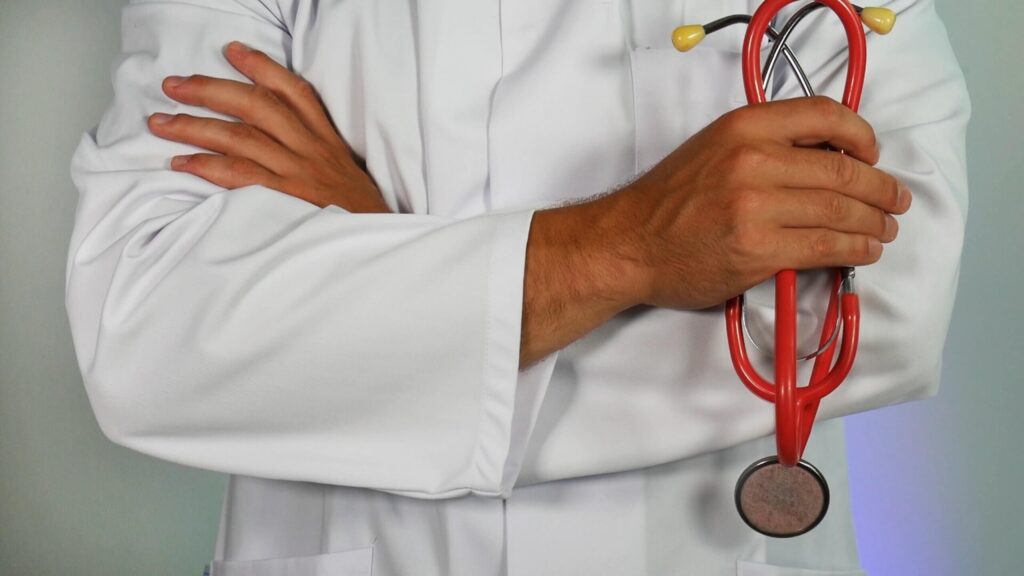People have their own reasons for turning to drugs and alcohol. Some are predisposed to addiction from an early age, while others suffer injuries or mental health issues that make addiction more likely. Healthcare professionals, just like everyone else, face their own individual challenges. However, there are also job-related factors that help explain why doctors are vulnerable to addiction.
From working demanding jobs to having access to addictive substances, doctors develop substance use disorders for many reasons. Identifying factors that contribute to addiction helps healthcare professionals recognize warning signs in their own lives, which could then prompt them to seek treatment.
Before we examine why doctors are vulnerable to addiction, let’s first look at how prevalent substance use disorders are in healthcare.
How Serious is the Problem Among Healthcare Professionals?
Drug and alcohol use are serious problems for many healthcare professionals. Though several other professions have higher rates of substance use disorders, the healthcare industry is not immune to addiction.
- Roughly 10 percent of healthcare professionals experience problems with drug or alcohol use during their lifetimes.
- Approximately 15 percent of surgeons suffer from alcohol use disorders.
- Research suggests that dentists drink excessively more often than other healthcare professionals.
- When compared to the general population, healthcare professionals have higher rates of benzodiazepine and opiate use.
- Healthcare professionals in anesthesia, emergency medicine and psychiatry have higher rates of drug misuse.
Several studies show further evidence of drug and alcohol use among doctors, nurses and other healthcare professionals, but these statistics give you an idea of how common addiction is in the field. However, the numbers alone don’t tell us why healthcare professionals turn to substances.
Why Doctors are Vulnerable to Addiction
Several factors play a role in the rates of addiction in healthcare. Doctors often face a great deal of pressure on the job. They work long hours and, in some cases, work rotating shifts throughout a given period. All these factors increase a person’s risk of developing a substance use disorder.
Healthcare professionals will be more likely to develop a drug or alcohol use disorder if they…
- Are already moderate drinkers,
- Are in situations where they are offered drugs or alcohol,
- Feel immune to the addictive effects of drugs (also known as pharmaceutical invincibility), and
- Socialize with people who have substance use disorders.
Certain professionals, such as those that work in emergency care or psychiatry, might have baseline personalities that make substance use disorders more likely. Many healthcare professionals are susceptible to addiction because of their access to certain drugs.
The reasons doctors turn to drugs or alcohol also vary according to the stage of their careers. For example, medical students are more likely to engage in recreational drug or alcohol use. Attending physicians and residents, meanwhile, might be more likely to turn to substance for performance enhancement or to treat themselves for conditions like pain, depression or anxiety.
Risk Factors for Addiction in Healthcare
So, by considering some of the reasons why doctors are vulnerable to addiction, we can see a few common risk factors. These include…
- Doctor burnout,
- Long hours,
- Rotating shifts,
- Easy access to certain drugs or medications,
- Exposure to others with substance use disorders, and
- Baseline personalities that make drug or alcohol use more likely.
Practicing medicine is a demanding job. Doctors face many challenges in their daily lives, so it’s not surprising that many would rely on drugs or alcohol without realizing the potential consequences of their actions.
Substance use disorders aren’t developed overnight. In many cases, a healthcare professional might occasionally turn to drugs or alcohol for relief before slowly finding that the frequency of substance use increases. It’s important to identify signs of addiction before it becomes such an obstacle that a doctor faces serious personal and professional consequences.
Finding Help
Some professionals realize how serious their addictions are before it causes personal or professional catastrophe. Others might be forced into treatment after an on-the-job incident leaves them no other choice. Whatever path leads a professional to reach out for help, treatment is always available to start the journey of recovery.
Whether you have been mandated treatment to save your career or you notice the signs of an impending collapse in your own life, you should know that help is only a call away. At Providence Treatment, we specialize in treating professionals to give them the best opportunity for a successful recovery.
Contact Providence Treatment to Learn More About Our Services
If you’d like to learn more about our holistic approach to addiction treatment for professionals, contact Providence Treatment by calling 866-247-3307 to speak to our team. We understand why doctors are vulnerable to addiction, and we know how to help them find a better path. Reach out today to find out how we can help.









